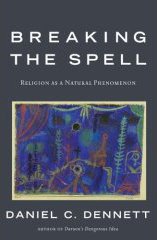Ran the
Wakefield Run For All Ages 5K around Lake Quannapowitt, 18:48, 14th out of 359. Splits: 5:50, 6:05, 6:07. Same exact time as I ran last year at the same race. Not what I had hoped for time-wise, but, there were strong head winds for more than half the race, mostly the latter half (my best time around that lake is 18:20.) I'm sure I wasn't the only one with positive splits.
I heard someone say that times were probably two minutes slower due to the winds — an exaggeration to be sure, but possibly one minute. Winning time was 17:14, with no others below 17:00; last year's winning time was 15:47 with seven below 17:00. Felt like it could have been an 18:00 effort run for me. It was pretty good/strong but tough run overall. Left adductor had gotten more sore with three days off (what's with that?), but was fine for the race and feels fine now in the evening (and what's with that?)
We went to see a local production of
Children of Eden this afternoon. Not bad, but not as good as the production my daughter was in last February. But very moving in any case. I love that musical — powerful, primitive themes. Despite my attitude toward religion in general (it's all bunk, sadly perhaps), the more I ponder it and read about it, the more I'm impressed with the power of religion; no wonder it caught on — it is, or was anyway, a Good Trick of evolution, like the eye, or flying, or the simulation engine (consciousness) — a Good Trick being an evolutionary development which has such excellent survival benefits that it evolved many times independently.

I'm back to reading Dennett's
Breaking the Spell, which I'd started but put down to read
The God Delusion and
Letter to a Christian Nation. Fascinating stuff. There are other books on the subject, but this is the first I've read. Taking a systematic, scientific, critical look at the phenomenon of religion. Why it exists, how it evolved, how it might have benefited early human survival, why it continued to florish.
He admits up front that much of what he will hypothesis may probably be crap, but a primary point is that we should get started in this venture of systematically examining religion, formulate some hypothoses, and test, debate, and refine the ideas in the scientific tradition.
He makes many interesting points and relates many interesting facts, but one point that struck me in particular was the issue of death in early humans. The death of a loved one evokes great emotions of pain and suffering. For very good evolutionary reasons (
The Selfish Gene — this explanation doesn't, of course, mean that these feeling aren't
real). However, upon death, there is the problem —
something must be done with the dead body.
Humans, for very good evolutionary reasons again, have a well developed sense of disgust, and we are rightly repelled by dead bodies as they quickly become a haven for all sorts of horrible contagious germs. It would be very surprising indeed if this dichotomy — the great emotional attachment to a loved one and their physical embodiment, and an anticipatory/developing sense of disgust over that same, now dead, body didn't evoke a great deal of psychological turmoil.
Dennett didn't mention this, but I can imagine ancient scenarios in which violence erupted (and premature death ensued) because a loved one of a deceased tried to prevent others in the community from taking appropriate actions in the disposing of the dead body.
Anyway, due to this great personal turmoil of these situations, which all individuals came to realize could be visited upon them (with the expansion of consciousness), there may well have developed careful and ritualized ways of disposing of the dead body, thereby satisfying the hygenic needs of the community, but also respecting the psychological needs of the surviving loved ones. He also talks about the persistent memory we have of deceased loved ones, how they are still present, almost viscerally, in our minds after they're gone physically, and how this phenomenon could easily lead to the notion of spirits/ghosts. Just a couple ways in which the kernels of religion may have developed.
Dennett discusses the sense we all have to alert us to dangers in the world out there, again evolutionarily developed. He calls it our hyperactive detection device (HADD). We hear a rustling in the woods, what is it? The wind? A tiger? An human from an enemy tribe? We all relate to this. Many people today, including myself, have a hair-trigger startle mechanism — I often nearly fall out of my chair in my cube at work if someone comes up behind and just says "hi".
This HADD, together with the
intentional stance, the idea of attributing intentions to entities outside ourselves, could lead to notions of gods. Add to the list of possible causes for the rustling in the woods — maybe it's a walking tree, whoa, a walking tree! Hundreds of ideas/explanations fleet through the mind, some practical, some pedestrian, some fantastic, but only a few capture the imagination. A walking tree, or some god, an invisible human-like creature could be behind the events.
I'm not explaining it well, but reading Dennett, it's easy to imagine how early humans could attribute the happenings of their surroundings, the weather, earthquakes, sickness, death, etc. to invisible beings. I strongly recommend this book to anyone interested in religion, even/especially true believers. Though Dennett is honest in not hiding his atheism, the thrust of his book is not to disuade believers, he just is looking for a natural/scientific explanation for the origin of religion. It doesn't necessarily preclude the existence of (your) God.
I like what he says in defense of the scientific investigation of the origins of religion, especially as it relates to believers:
A good professor of music theory can take apart a Mozart symphony or a Bach cantanta and show you how the various design features work to achieve there "magic," but some people prefer not to delve into these matters, for the same reason that they don't want stage magic tricks explained: for them, explanations diminishes the "wonder." Maybe so, but compare the uncomprehending awe with which the musically uneducated confront a symphony to the equally superficial appreciation of someone at a soccer match who doesn't know the rules or the fine points of the game, and just sees lots of kicking the ball back and forth and vigorous running around. "Great action!" they may sincerely exclaim, but they're missing most of the excellence on offer. Mozart and Bach — and Manchester United — deserve better.





